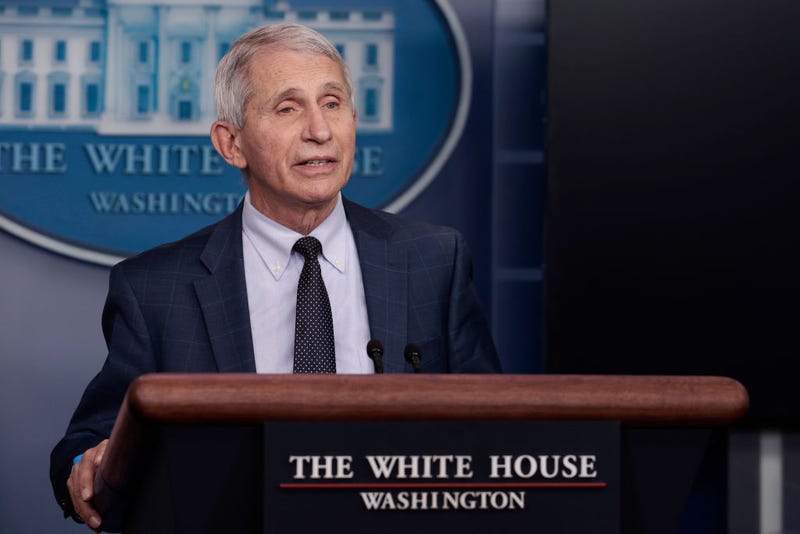
Dr. Anthony Fauci, the nation's leading infectious disease expert, said Americans may "just have to deal with" the possibility of getting annual coronavirus booster shots.
Fauci said it would be "a period of months" before health officials know how long protection from a third booster shot will last.
"If it becomes necessary to get yet another boost, then we'll just have to deal with it when that occurs," Fauci said during a Sunday morning appearance on ABC's This Week.
Fauci, the director of the National Institute of Allergy and Infectious Diseases and the Chief Medical Advisor to the President, added that it's possible a COVID booster shot will become an annual thing.
While health officials are still studying the long-term effectiveness of booster shots, Fauci said a third shot has so far shown to drastically decrease the severity of illness or likelihood of death if someone becomes infected with the coronavirus.
"I'm hoping, from an immunological standpoint, that that third shot of an mRNA and the second shot of a J&J will give a much greater durability of protection than just the six months or so that we're seeing right now," he said.
At this point, a third shot is not required to be fully vaccinated, though Fauci encouraged everyone who is eligible -- roughly 100 million Americans -- to consider getting a booster shot.
"For now, if you want to be optimally protected, absolutely get a booster if you've already had your primary vaccination," he said.
Fauci added that getting a booster is especially important as the highly transmissible Omicron variant continues to spread.
"The somewhat encouraging news is that preliminary data showed that when you get a booster... it raises the level of protection high enough that it then does do well against the Omicron," Fauci said, "which is another reason to encourage people who are not vaccinated to get vaccinated, but particularly those who are vaccinated to get boosted because that diminution in protection seems to go way back up again."
The World Health Organization has labeled Omicron as a variant of concern because of its mutations. It was first discovered in South Africa, sparking shutdowns in several European countries and travel restrictions from southern Africa. It has now been detected in more than 50 countries, including the U.S.
The Centers for Disease Control and Prevention and the U.S. Food and Drug Administration last week expanded booster eligibility to include anyone age 16 and older.


